Faith and Miracles (I.D. VI)
But my reason for saying that is not one Dembski apparently embraces. In my view, which I call "genesis by witness," faith has ontological force. Faith is what makes a miracle possible.
In Dembski's view, faith has merely epistemological force: faith is at best that cast of mind which allows us to know that a miracle is a miracle.
 |
| Friedrich Schleiermacher |
According to Dembski, Schleiermacher assumed that causality was a form of entailment (see p. 58). That is, if cause C is the cause of event E, then it is impossible for E to be false (not to happen) if C is true (does happen). So if miracle M happens instead of the expected naturalistic event E — even though C truly happens — something is rotten in Denmark. Specifically, there is a logical, not just a causal, contradiction. And logical contradictions are not only impossible, they are supposedly incoherent.
Since it putatively makes no sense to lay incoherence at the doorstep of a wholly rational God, there can accordingly be no "absolute miracles." Thus, Schleiermacher.
Now it appears to me, at least at this stage of my perusal of Intelligent Design, that Dembski wants more than anything else to refute Schleiermacher ... and thereby Spinoza. Dembski's method is roughly this:
First, disentangle "epistemological critiques" of miracles from "naturalistic" ones. Spinoza made both kinds of critiques, but Schleiermacher focused on the latter.
Second, show that epistemological critiques of miracles such as Spinoza's (and, later, David Hume's) are invalid. They:
... always remain inconclusive. ... [A]n epistemological critique can never succeed in overthrowing the concept of miracle. The problem ... is that our capacity or incapacity to know something is never determinative of a thing's status in reality ... Reality and our ability to know reality are always two separate questions. (p. 60)
Third, show that naturalistic critiques are equally ill-founded. In this vein, Dembski says that Schleiermacher's naturalistic critique simply makes Spinoza's earlier attempt more explicit. So, if Dembski can refute the latter, the former is also refuted.
To refute the latter, Dembski basically seeks to overturn the way in which Schleiermacher "collapsed causality into logical necessity," or, put differently, entailment (p. 61). This argument is quite an involved one, and rather than pick it apart here, I wish to suggest that, en route to making his case, Dembski glosses over a "third way" perspective I find more appealing than either Schleiermacher's or Dembski's.
This "third way" perspective is hinted at when Dembski says (p. 61), "Perhaps faith needs to be presupposed before we can know that an event M is a miracle." That sentence is endnoted thus:
Alan Richardson [in The Miracle Stories of the Gospels] takes this position in discussing Jesus' miracles: "Only those who came in faith understood the meaning of the acts of power. That is why any discussion of the Gospel miracles must begin, as we began, with a consideration of the biblical theology, with the faith which illuminates their character and purpose." (p. 283)
But my "third way" perspective goes one step further. It proposes that what is at issue is ontology as much as it is epistemology. "Coming in faith" makes miracles possible; it does not simply open our minds to them.
Put another way, "coming in faith" is a necessary (though perhaps not sufficient) condition for a miracle to occur. Our readiness to witness a miracle unblocks the very existence of the miracle.
Saying that miracles are in effect actualized by faith is wholly analogous to the paradoxical quantum logic of John Archibald Wheeler, which I discussed in
- Genesis by Witness (I.D. V)
- Standpoint and Fact
- Randomness by Observership?, and originally in
- Genesis by Observership, in my A World of Doubt blog.
A photon's emission along a particular path is an event that must be modeled, Wheeler's logic goes, by applying the scientific theory of quantum mechanics. The theory, taken to its logical conclusion, tells us that pointing our telescope at Path A, a trajectory by which a photon may travel to us from a distant light source such as a quasar, retroactively cancels the equiprobable possibility that Path B is traversed instead. Pointing the telescope at Path B likewise selects it retroactively as the path that is traversed by the photon.
This, despite the apparent fact that the photon's actual path would have had to be chosen millions of years ago, depending on how far the light source is from Earth. Wheeler confirms this scientific "fact" mathematically, based on quantum-mechanical presuppositions, and also by virtue of a thought experiment. It has also been confirmed in the form of a more manageable experiment performed in a laboratory.
Such logic stands Schleiermacher on his head. Schleiermacher assumed (Dembski shows) that every event E has a cause C so definite and ineluctable that if C exists, E must happen. Or, put another way, C entails E.
Likewise, if event E happens, there must be some cause C which entails E. The existence of E entails that some C caused it.
But in Wheeler's crazy quantum logic, there is no cause C which entails the use of Path A by the photon. After all, perhaps our training the telescope on Path A was done at random, by the flip of a coin. Our happenstance observational choice does not constitute a coherent cause of Path A's actuality. If the coin had come up the other way, we would have trained the telescope on Path B, turning that potentiality into the observed actuality.
If Wheeler's logic is correct in the realm of quantum mechanics, and (note this well) if I am correct in assuming that his paradoxical quantum logic transposes over to the realm of miracles, then our observational "witness" (provided that we "come in faith") has the same ontological force for miracles as our telescopic observational choice has for quantum phenomena.
So I would say that faith has to be presupposed, not just so that we can know for sure an astounding event is a miracle, but so that the miraculous event can exist as such in the first place.
Faith is active and creative, not just reactive and judging. Faith moves mountains; it doesn't just confirm that mountains have been moved. Faith creates miracles as much as miracles create faith.






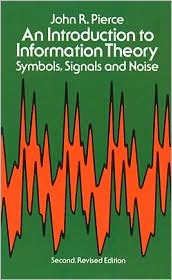

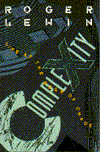
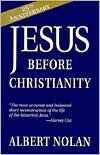
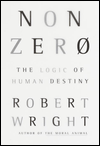

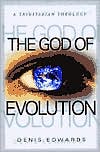

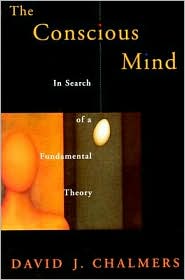
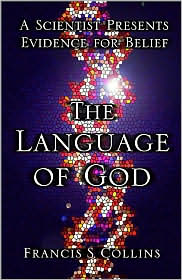


0 Comments:
Post a Comment
<< Home